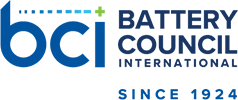New Study Finds Nearly 100 Percent of All Lead Batteries Avoid Landfills
CHICAGO — A study released today finds that lead batteries have a recycling rate of 99.3 percent, making them the number one recycled consumer product in the U.S. The near perfect rate of recycling is attributed to industry investment in a state-of-the-art closed-loop collection and recycling system that keeps 1.7 million tons of batteries out of landfills annually.
The National Recycling Rate Study released in conjunction with America Recycles Day by Essential Energy Everyday and Battery Council International (BCI), demonstrates the exceptional sustainability of lead batteries and their role in environmentally-friendly energy storage for automotive and industrial applications.
“Our goal for the lead battery manufacturing process is to collect and recycle and reuse lead batteries and their components. In essence, to create a ‘closed-loop industry’ that significantly reduces the demand on global resources, said Mark Thorsby, executive vice president of BCI. “On average, a new lead battery is comprised of more than 80 percent recycled lead battery material,” added Thorsby. “Every part of the battery, from lead and plastic to sulfuric acid, is recyclable and reusable in manufacturing new batteries. This reduces the need for new lead mining, reduces waste and helps keep lead out of landfills.”
In 2014, the EPA noted that the rate of lead battery recovery was almost 99 percent, the highest recycling rate among other more well-known recycled products such as newspapers (63 percent), aluminum cans (55.1 percent), tires (40.5 percent), glass containers (32.5 percent), PET bottles (32.2 percent) and more.
“Our country needs energy delivered in an environmentally friendly, safe and affordable manner and the recycling rate our industry has achieved is evidence of our commitment to that goal. We are proud of this record and the fact that lead batteries provide essential energy storage to power millions of cars, buses, airplanes, trains and logistic networks as well as backup recovery systems that protect life, investments and data in emergency situations,” added Thorsby.
As the most accessible highly-sustainable battery technology, lead batteries’ innovative applications also reduce CO2 emissions from vehicles through start-stop battery technology, help power hybrid and electric vehicles and enable smart grid technology that improves the reliability of wind and solar farms.
The state-of-the-art closed-loop process that ensures lead batteries’ high rate of recycling is recognized by the World Economic Forum and MIT’s Center for Transportation and Logistics as the world’s most successful example of a circular economy—featuring the design, production, transportation, recycling and recovery of vehicle batteries.
The study was produced by SmithBucklin Statistics Group and was commissioned by BCI. The methodology for calculating the recycling rate considers new battery shipments, battery exports, imports of products containing a battery and imports of scrap lead and used batteries.
Essential Energy Everyday is also supporting America Recycles Day with a social media campaign that promotes recycling of other consumer products and encourages policymakers to consider sustainability when adopting energy storage policies. More information can be found at www.facebook.com/EssentialEnergyEveryday
View a video of the recycling process here: http://aboutbatteries.batterycouncil.org/How-do-I-recycle-my-lead-battery
About Essential Energy Everyday
Essential Energy Everyday exists to increase awareness of the critical importance of lead batteries in powering our daily lives. We encourage continued investment in sustainable lead battery technology to store and provide energy on demand. Our initiative is supported by the two global trade associations that represent the lead battery and lead industries, Battery Council International and the International Lead Association.
###


